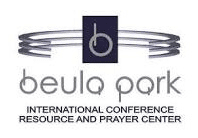Studying the Bible can be a very personal and meaningful experience. Here are some suggestions to help you get started:

Determine your purpose: Before you begin studying the Bible, it is important to determine why you want to study it. Are you seeking to deepen your faith, understand its historical context, or gain a deeper understanding of its teachings and messages? Having a clear purpose will help you focus your study and make the most of your time.
Choose a translation: There are many translations of the Bible available, each with its own strengths and weaknesses. Some popular modern translations include the New International Version (NIV), the New Revised Standard Version (NRSV), and the New American Standard Bible (NASB). Choose a translation that you find readable and understandable.
Read with context in mind: The Bible was written over a period of thousands of years by many different authors in different cultural and historical contexts. It is important to keep this in mind when reading and interpreting its passages. Consider the context of the book, the audience it was written for, and the historical and cultural background of the author.
Use study tools: There are many resources available to help you understand the Bible, including study Bibles, commentaries, and concordances. These tools can provide valuable insights and background information to help you better understand the text.
Read the Bible in its entirety: While it can be tempting to focus on specific passages or books, it is important to read the Bible as a whole in order to gain a complete understanding of its message. Consider reading the entire Bible over a period of time, rather than studying individual books or passages in isolation.
Reflect on what you've learned: After reading and studying a passage, take time to reflect on what you have learned. Consider what the passage means to you personally, how it fits into the larger message of the Bible, and how you can apply its teachings to your life.
Pray for understanding: Finally, remember that the Bible is a spiritual document, and that the Holy Spirit can provide guidance and understanding as you study. Pray for wisdom and insight as you read and reflect on the text.
How are you currently approaching your Bible Study practices? Share in the comments below!




